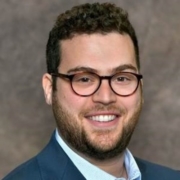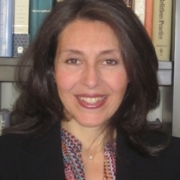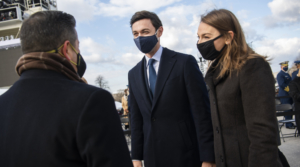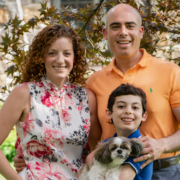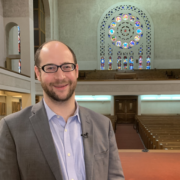Lishma
“Tell me and I forget, teach me and I remember, involve me and I learn.” – Benjamin Franklin
Learning together as a community. That has always been the way of the Jewish people. Starting with Moses and continuing through every generational link in our history; learning and growth have always been at the forefront of the Jewish communal experience.
One of my favourite learning communities that I have the privilege of being a part of here at Holy Blossom is the “Lishma: Jewish Learning Collective”. We are a community of learners in our 20s and 30s that consist of seasoned scholars as well as folks who are brand new to the pursuit of life-long Jewish education. This collective is presented in partnership by Holy Blossom Temple, Annex Shul, BASE, UJA Genesis, Miles Nadal JCC, and Beth Tzedec.
With community members representing different denominations, ethnicities, gender identities, sexual orientations, and levels of physical and mental ability, this is one of the most inclusive spaces I have ever belonged to. The model goes like this:
Lishma hosts at least three semesters during the year and each semester consists of three different class options running concurrently:
- Hands-On Track; applied Jewish learning
- Judaism and Modernity Track; Judaism through a contemporary lens
- Text and Context Track; in-depth, expertly-led text study.
Each class runs for six weeks and is taught by a local Jewish community member, ranging anywhere from rabbis to social workers to amateur chefs. During the covid-19 pandemic, we moved this model online and have sold out every seat of every class! It is an incredible achievement that perfectly illustrates the desire of young Jewish professionals to engage in meaningful learning and community building.
I am excited to be offering a text-based course during our upcoming semester (beginning on April 21st) in which we will be exploring Pirkei Avot as well as a new publication entitled “The Illustrated Pirkei Avot” by Jessica Tamar Deutsch. I have even invited Jessica to guest lecture one of the six sessions and share some of her wisdom and writing process. This is still in the works, but promises to be an engaging and enriching course!
While we are committed to creating an inclusive space for all students, this learning collective is specifically designed for Jewish young adults. Many of the members of Holy Blossom’s YAD (Young Adult Division) are woven into the fabric of the Lishma community. If you are interested in exploring this option or know someone who may want to get involved, please connect with me at [email protected] or check out the Lishma website at lishma.ca.
I believe that good learning, and specifically Torah study, should be transformative. Meaning, that the material that we engage with changes us in some way; widening our perspective, challenging theological conceptions, or even inspiring us to change our behaviours. While “Torah Lishma” literally means Torah study for its own sake, I find that being in the Lishma community offers so much more than simply learning for learning’s sake. It offers a sense of growth, outlets for curiosity, camaraderie, an inclusive spirit, and much more.
Learning together as a community. Holy Blossom does this well. From our Little Blossoms to our members more advanced in years, we are committed to being a congregation of life-long learners. Our involvement as a partner organization of Lishma not only provides our YAD members with enriching educational opportunities, it also further establishes Holy Blossom as a community that lives out its stated values.
“Say not, ‘When I shall have leisure I shall study’; perhaps you will not have leisure!” – Pirkei Avot 2:4

